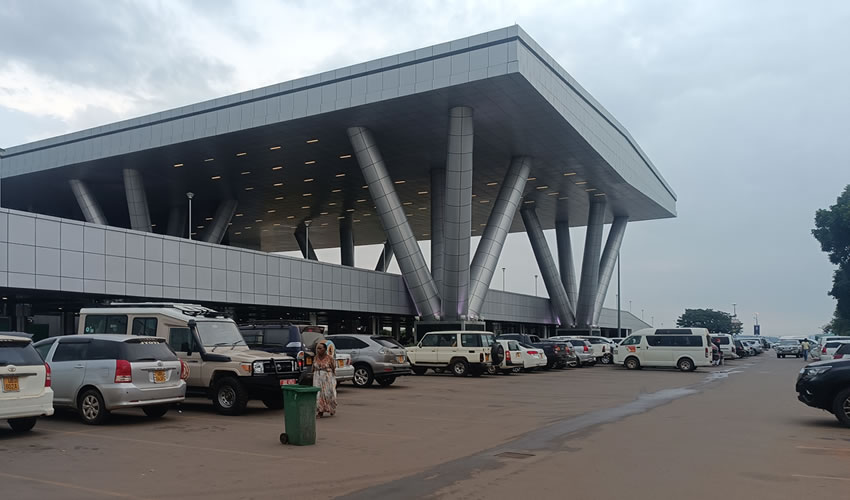Uganda is highly dependent on agriculture for economic output and employment. The agriculture sector contributes about 23.7 percent of Uganda’s GDP, 31 percent of its export earnings, and all food requirements. Remember that Uganda’s population is predominantly rural, with 82 percent residing in rural areas. Driven by rapid population growth and limited employment opportunities, the agriculture sector still employs about 75 percent of the workforce and 55 percent of the youth. The Uganda Bureau of Statistics (UBOS) identified that between 2016 and 2020, there was an 8 percent increase in households participating in subsistence agriculture with an additional number of households turning to agriculture during the Covid-19 pandemic. Uganda also has an ageing farmer profile with 55 percent of farming heads of households over age 40 and 20 percent over age 60. Although agricultural incomes have increased, this progress has depended on exogenous factors such as good weather and prices rather than productivity-enhancing factors such as technology, training, irrigation, and farm-to-market infrastructure, rendering incomes susceptible to shocks. Digital solutions incubated during the Uganda Institute of ICT Agri-Tech Hackathon can potentially address key agriculture sector bottlenecks such as low uptake of improved agriculture inputs, limited access to suitable financial products and low access to reliable weather information among others.
To appreciate the significance of the Agri-Tech hackathon that was held a couple of days ago at the Uganda Institute of Information and Communications Technology, it's imperative to grasp the details of Uganda's agricultural landscape. While the sector boasts abundant resources and potential, it grapples with systemic issues such as limited market access, low productivity, post-harvest losses, and inadequate technological integration. These challenges underscore the urgent need for innovative solutions to propel the sector forward.
In recent years, Uganda has witnessed a surge in Tech hackathons, serving as crucibles of creativity and collaboration. These hackathons convene a diverse array of stakeholders, including innovators, entrepreneurs, farmers, and policymakers, with a shared mission to tackle socio-economic challenges through technology-driven solutions.
At the heart of the Agri-Tech hackathon lies a commitment to empower farmers, the backbone of Uganda's agricultural sector. From mobile applications facilitating market access to sensor-based technologies optimizing farm management, these hackathons equip farmers with tools to enhance productivity, reduce losses, and improve livelihoods. Concrete examples, such as the development of mobile apps connecting farmers to buyers or agronomic advice services, illustrate the tangible impact of these initiatives.
The Agri-Tech hackathon serves as fertile ground for entrepreneurship, nurturing the seeds of innovation and fostering a culture of risk-taking. By providing mentorship, seed funding, and networking opportunities, these platforms enable aspiring innovators to transform their ideas into viable businesses.
Sustainability lies at the core of Uganda's agricultural transformation agenda. Agri-Tech hackathons play a pivotal role in promoting sustainable farming practices by leveraging technology to conserve resources, mitigate environmental impact, and enhance resilience to climate change. Examples such as the adoption of precision agriculture techniques or the use of renewable energy in farming operations underscore the potential of technology to drive sustainability.
According to the Uganda Bureau of Statistics, the annual inflation rate for the year ending February 2021 was 2.3%, which increased to 3.2% in February 2022 and 9.2% in February 2023. As a result, the prices of essential food staples remain persistently elevated. Uganda produces more food than it consumes, yet access to nutritious food in the country is limited. Therefore, Food security remains a pressing concern in Uganda, intensified by factors such as population growth, climate variability, and market volatility. The Agri-Tech hackathon contributes to addressing these challenges by optimizing supply chains, improving storage facilities, and promoting crop diversification. Real-life examples, such as initiatives enhancing access to climate-smart agricultural inputs or improving market linkages for smallholder farmers, demonstrate the tangible benefits of technology in ensuring food security.
Women and youth play pivotal roles in Uganda's agricultural sector, yet they often face barriers to participation and advancement. Agri-Tech hackathons prioritize gender equality and youth inclusion, providing platforms for women and young entrepreneurs to showcase their innovations and contribute to the sector's transformation. Integrating testimonials or interviews with female innovators and young entrepreneurs can amplify their voices and experiences.
It should be noted that the success of Agri-Tech hackathons hinges on collaborative partnerships between the Government of Uganda, private sector entities, academia, and civil society organizations. Government plays a crucial role in creating an enabling environment through supportive policies and investment in agricultural research and development. Private sector engagement brings expertise, resources, and market linkages, while academic and research institutions contribute technical knowledge and innovation. Emphasizing the importance of multi-stakeholder collaboration and highlighting successful partnerships can underscore the collective effort required to drive agricultural transformation.
In conclusion, although there is an active digital innovation community in Uganda, predominantly clustered around Kampala, the start-up community has struggled to offer products and services with strong value propositions and sound revenue models relevant to the agriculture sector. The developer community has created over 80 digital agriculture technology solutions, the majority of which have failed to scale up due to limited Government support with unfunctional programs like the National ICT Initiatives Support Program that was mandated to facilitate the creation of an ICT Innovation ecosystem and marketplace for Ugandan innovative digital products as well as dependence on donor funding.
Agri-Tech hackathon represented an inspiration of hope in Uganda's journey towards agricultural and socio-economic prosperity. By harnessing the power of technology, collaboration, and innovation, these initiatives are reshaping the agricultural landscape and empowering communities across the nation. As Uganda strides forward on its path to transformative development, Agri-Tech hackathons stand as catalysts for change, driving inclusive growth, resilience, and prosperity for generations to come.
By Dickson Namisi
Head of Digital Media Unit








Comments